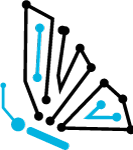Jared Feindt

Biomedical Engineering Student
Bucknell University
Advice to Students
Do it if you love it, not because someone else wants you to or tells you to. If you’re good at the skills or people say that you think like an engineer, use that when considering your direction, but don’t let it determine it.
Education
Bucknell University, Senior, BS in Biomedical Engineering
Interview Segment
When did you know you wanted to become an Engineer?
Freshman year my biomedical engineering friends told me they were designing a syringe as a final project, while I was busy doing readings in biology and chemistry that bored me. I missed the math and physics and the problem solving, so I made the switch.
What is your university experience like in terms of the amount of time you find you need to study each day? Did you find yourself studying more in a team situation or alone?
A combination of both. I did most of my homework and lab with peers, but if I did not have any questions that I needed to talk to my peers about, I would study alone. This was especially true during finals, when I understood all of the material and I just needed to review it. However, this had drawbacks too, I became such a hermit that I was unable to get any more studying in at some points.
Is there a specialty area you have focused on in engineering? If so, what is it, and how did you decide on this specialty? Also, at what point in your university experience did you decide?
Through senior design and a research project I’ve been able to focus on devices. I decided on it because I don’t like biology or chemistry, so tissue engineering and cell/molecular work is out of the picture. I did medical imaging research last summer and decided that was not the field for me either, but I’m doing an intubation device research project right now that I love and I’ll be continuing to look at medical devices in my PhD.
What’s the hardest thing you have found about your university experience working toward a degree in engineering?
Finding a way to balance it all, it took me until my junior year to really figure out my most effective work habits.
What’s the most rewarding aspect about working toward a degree in engineering?
The ability to talk about all of the amazing projects that I’ve been able to work on along the way. I’ve had classes where I sit in a circle and talk, but none of it has been as important as the projects I get to work on in engineering.
Do you have any idea what sort of industry or work you’d like to do when you graduate? If so, how did you find out about this industry or field?
My advisor is the Chief Technical Officer of her own startup, so I hope that I’ll be able to discover a technology and become a CTO myself while working in industry
Is there anything that you have done outside of coursework that has prepared you for the working world? (i.e. internships, jobs, etc.)
I’ve been lucky to be Dean Buffinton’s Undergraduate Executive Intern, which has taught me many professional skills and made me realize how important connections are. My work in research projects has also given me the work ethic and attention to detail necessary to contribute when I enter my PhD next year.
Do you think you’ll want to pursue additional degrees after you complete the one you are working on? Why or why not?
I’m getting a PhD at Lehigh next year because I want to have more autonomy in the projects that I get to work on in my career as a biomedical engineer.
What advice do you have for high school/secondary school students to prepare them for the work that engineering students do?
Do it if you love it, not because someone else wants you to or tells you to. If you’re good at the skills or people say that you think like an engineer, use that when considering your direction, but don’t let it determine it.
























